
Would a prestigious national institution invite a Holocaust denier to speak about World World II, or a member of the KKK to speak about race relations?
We can't know what they were thinking when the NIH extended their invitation to Dr. Shorter, who is certainly no expert on any aspect of ME/CFS. But we do know that inviting a man who is so outspoken in his absolute denial of the disease reflects very poorly on the attitudes of the institution that recently pledged to take ME/CFS "very seriously."
You can read more about Dr. Shorter's invitation as well as his disparagement of ME/CFS patients HERE.
Dr. Shorter is scheduled to speak on November 9. Please send a letter to your representative today.
______________________________
From Solve ME/CFS Initiative
BREAKING NEWS: Last week, deeply troubling information was discovered on an archived National Institutes of Health (NIH) webpage. A lecture titled “Chronic Fatigue Syndrome in Historical Perspective” is scheduled for Wednesday, November 9, to be presented by the controversial and inflammatory history professor Edward Shorter, PhD.
A professor of psychiatry and history at the University of Toronto, Shorter is an outspoken skeptic about the biological nature of ME/CFS. He has referred to the disease as both a “psychodrama” and a “psychic epidemic” and called the findings of the Institute of Medicine’s report on ME/CFS last year “junk science.”
Read more about this announcement here: http://solvecfs.org/disparaged-speaker-to-present-at-nih-next-week/.
The Solve ME/CFS Initiative is formally protesting the inclusion of Dr. Shorter as a speaker and writing to the NIH to ask them to provide scientifically grounded balance.
Read SMCI’s letter here: http://solvecfs.org/wp-content/uploads/2016/11/SMCI-Letter-of-Protest-Dr-Shorter.pdf.
We need your help in contacting your congressional representative ASAP to keep up the pressure on the NIH.
Follow these three easy steps below:Step 1: Call your representativeTo find your U.S. House of Representatives member, visit http://www.house.gov/representatives/find/.
Please note that this action is for REPRESENTATIVES ONLY, NOT SENATORS.
Please call the Washington DC office, not the district office, and ask to speak to the legislative assistant for health. If the legislative assistant is not available, you can ask to leave a message or immediately ask for the e-mail address of the legislative assistant to send him or her your request in writing.
Feel free to tell the legislative assistant your story, but remember to be very brief. Use the sample script below as a guide.
My name is _________. I’m a constituent in {city}. I am calling with an urgent request for Representative {NAME} to contact the National Institutes of Health. The NIH has invited an inflammatory and controversial speaker, Dr. Shorter, who denies that ME/CFS is a physical disease. Between 1 to 2.5 million Americans like me [or my family member] who are afflicted with the horrific, disabling, and costly disease myalgic encephalomyelitis, also known as chronic fatigue syndrome or ME/CFS. ME/CFS has no known cause, cure, diagnostic test, or FDA-approved treatment, and it often leaves patients bedridden for decades. Please urge Representative {NAME} to support patients and voice their concern about this troubling speaker who calls me [or my family member] “delusional.” May I have your e-mail address to send you additional information?
If you do not receive an e-mail address for a particular staffer, ask for the general comment e-mail address.Step 2: E-mail your representativeAfter you speak to the staff person by phone, it is always helpful to follow up with an e-mail. Download a helpful ME/CFS issue fact sheet here (http://solvecfs.org/wp-content/uploads/2016/11/SMCI-NIH-Response-Flaws-Flier.pdf) to include with your e-mail. Feel free to personalize the e-mail below.
Dear Congress Member [LAST NAME],
As a constituent and as a (caregiver to / loved one of) a patient with myalgic encephalomyelitis (ME), commonly known as chronic fatigue syndrome (CFS), I am bringing your attention to the immediate need for Congress to assist ME/CFS patients. In September, 55 bipartisan members of the House of Representatives joined together to write to NIH Director Francis Collins regarding ME/CFS. That letter was not enough, and we need your help now.
As you may know, ME/CFS is a complex disease with no known cause, treatment, diagnostic tool, nor cure. The CDC estimates that up to 2.5 million Americans suffer from ME/CFS, and patients have lower quality of life scores than those with lung cancer, stroke, and rheumatoid arthritis. According to the 2015 Institute of Medicine Report on ME/CFS, the disease costs the U.S. economy an estimated $17-$24 billion per year.
The National Institutes of Health (NIH) has not taken substantial action. When Director Collins responded to Congress, he wrote of an ME/CFS Interest group, a lecture series, and the promise of funding to come. Read more about Director Collins’s response here: http://solvecfs.org/wp-content/uploads/2016/11/SMCI-NIH-Response-Flaws-Flier.pdf.
And the NIH continues to disregard the legitimate needs of ME/CFS patients. On Wednesday, November 9, the NIH’s clinical center is scheduled to host a lecture given by Dr. Edward Shorter, a historian at the University of Toronto and one of the most controversial and inflammatory figures to the ME/CFS patient community. This man, despite overwhelming scientific evidence, does not believe ME/CFS is an actual disease—instead calling it a “psychic epidemic” perpetrated by “moaning and groaning victims” who are “delusional.” Dr. Shorter has written pieces so disparaging of patients that they were removed from circulation by Psychology Today.
The NIH is clearly not prioritizing a solution to ME/CFS when they provide a forum for a speaker who demeans patients and denies scientific findings. I am asking you to please stand with patients who are very ill with this very REAL physiological disease, as verified by thousands of published scientific articles.
Please contact NIH Director Francis Collins and ask him to
- Present scientifically grounded information to NIH researchers. If the NIH insists on including an inflammatory and controversial speaker who offers no scientific rigor, please balance this with an opposing expert such as Mary Dimmock, author of 30 Years of Disdain: How HHS and a Group of Psychiatrists Buried Myalgic Encephalomyelitis.
- Reaffirm the findings of the Institute of Medicine report that ME/CFS is a true physiological disease, not a psychological one.
- Prioritize ME/CFS funding with substantial investment commensurate with the burden of this devastating disease.
Very truly yours,
(NAME)
Step 3: Let us know how it wentE-mail our advocacy and engagement manager, Emily Taylor ([email protected]), to let us know your member of Congress received the message.
Thank you for doing your part to advocate on behalf of all the patients who suffer with this disease.


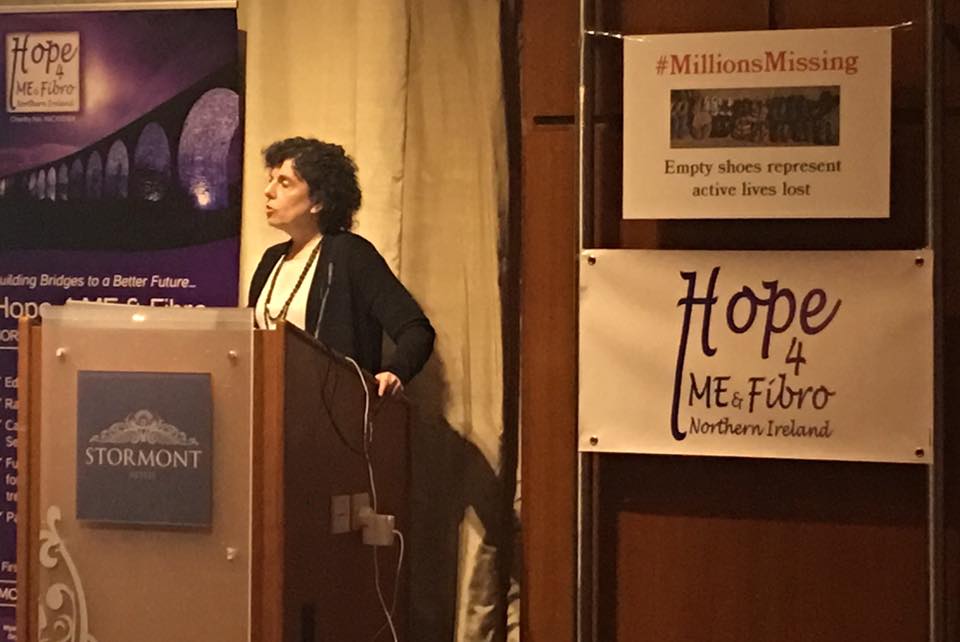
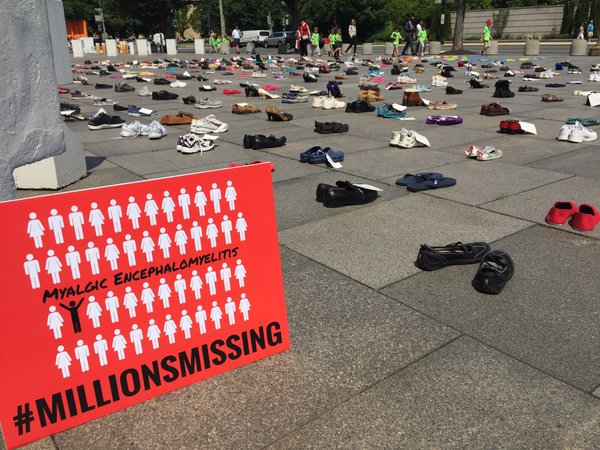
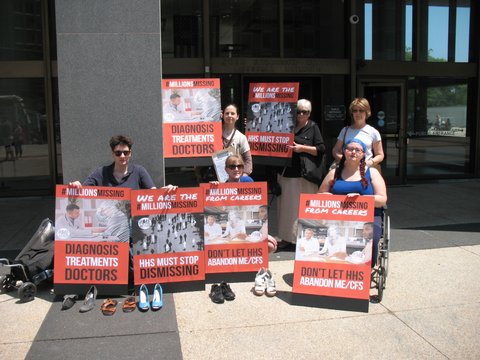
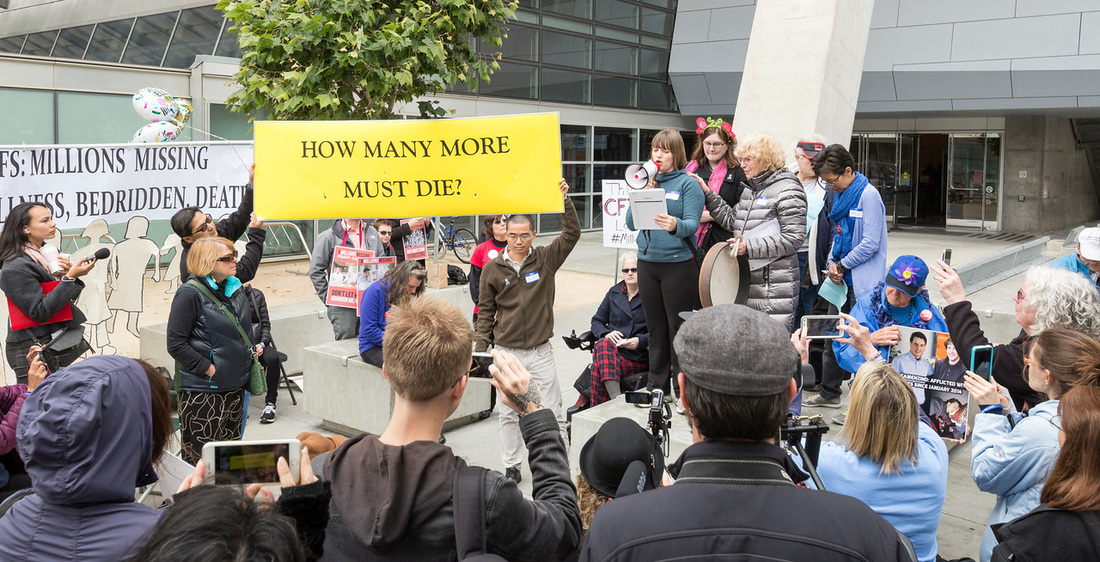





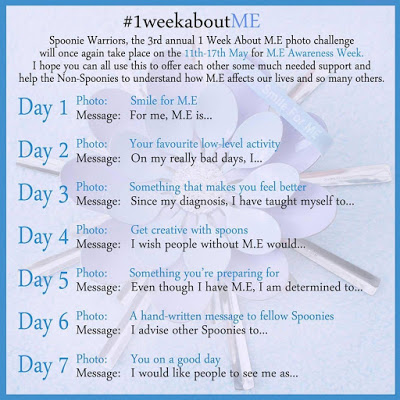
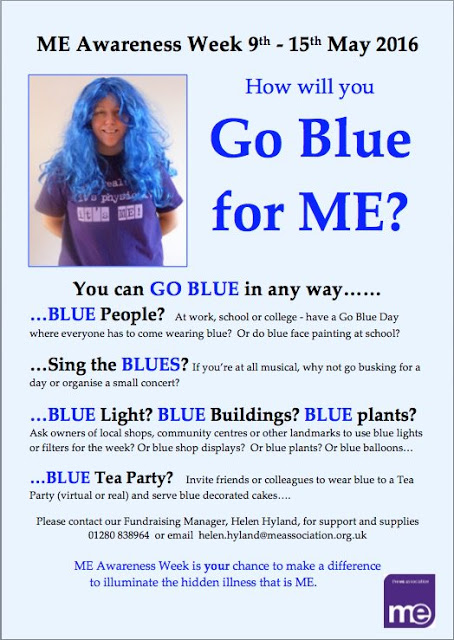


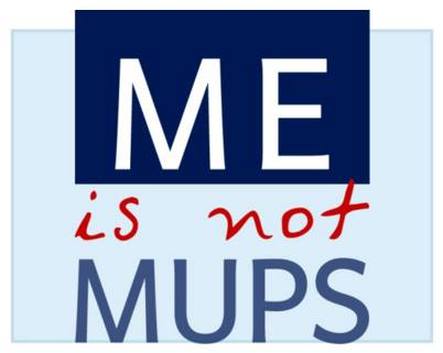
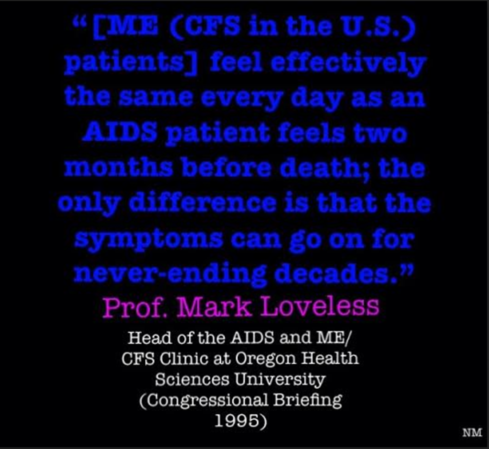

 RSS Feed
RSS Feed
